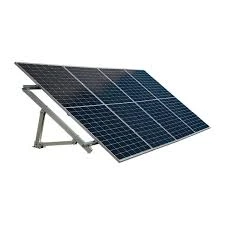marine solar panels
Harnessing the Power of the Sun Marine Solar Panels
As the world increasingly turns toward renewable energy sources to combat climate change, marine solar panels are emerging as a viable solution for generating sustainable power in aquatic environments. These innovative technologies not only provide clean energy but also promise a myriad of benefits for industries that rely on the ocean, ranging from aquaculture to shipping.
Marine solar panels are specifically designed to withstand the harsh maritime conditions, including saltwater corrosion, high winds, and waves. Unlike traditional solar panels, which can suffer from degradation when exposed to extreme conditions, marine solar panels feature robust materials and designs that enhance their durability and efficiency. This resilience enables them to harness solar energy on a large scale, even in coastal and offshore locations where energy demand is rising.
One of the most compelling applications of marine solar panels is in the aquaculture sector
. Fish farms and shellfish operations are often located in areas with abundant sunlight. By integrating solar panels into these sites, operators can reduce their reliance on fossil fuels while providing a constant power supply for aerators, water pumps, and other essential equipment. This shift not only lowers operational costs but also diminishes the overall carbon footprint of these enterprises.Moreover, marine solar installations can be strategically placed on the surface of water bodies, minimizing land use and preserving valuable terrestrial environments. Floating solar farms can cover reservoirs, reducing evaporation and keeping algae growth in check while generating electricity. This dual benefit is particularly appealing in regions facing water scarcity.
marine solar panels

In the shipping industry, marine solar panels offer a promising avenue for sustainability. Solar power can be harnessed to operate auxiliary systems on vessels, such as lighting, communications, and navigational equipment. By decreasing the reliance on diesel generators, shipping companies can significantly lower their greenhouse gas emissions and operational costs. As regulatory frameworks tighten around shipping emissions, the adoption of solar technology becomes not just beneficial but necessary for compliance and market competitiveness.
Furthermore, advancements in energy storage technologies are complementing the deployment of marine solar panels. Storage systems ensure that the energy harnessed during sunny conditions can be utilized during periods of low sunlight. This capability is critical for maintaining a stable power supply, particularly in remote marine environments.
The growth of marine solar technology also opens up new avenues for research and development. By working collaboratively with marine ecologists and engineers, innovators can ensure that solar installations do not disrupt marine ecosystems. In fact, there is potential for these structures to foster habitats for aquatic life, thereby contributing positively to biodiversity.
In conclusion, marine solar panels represent a powerful convergence of technology and sustainability. They offer a compelling path for industries operating in and around water bodies to transition to renewable energy sources, driving down costs and reducing environmental impacts. With continued investment and innovation, marine solar energy can help illuminate a sustainable future for coastal communities and marine environments alike.
-
String Solar Inverter: The High-Efficiency Solution for Smart Solar EnergyNewsJul.14,2025
-
Revolutionizing Rooftop Energy with the Power of the Micro Solar InverterNewsJul.14,2025
-
Power Independence with Smart Off Grid Solar Inverter SolutionsNewsJul.14,2025
-
On Grid Solar Inverter: Powering the Future with Smart Grid IntegrationNewsJul.14,2025
-
Monocrystalline Solar Panels: High-Efficiency Power for the Future of Clean EnergyNewsJul.14,2025
-
Bifacial Solar Panel: A Smarter Investment for Next-Generation Energy SystemsNewsJul.14,2025







